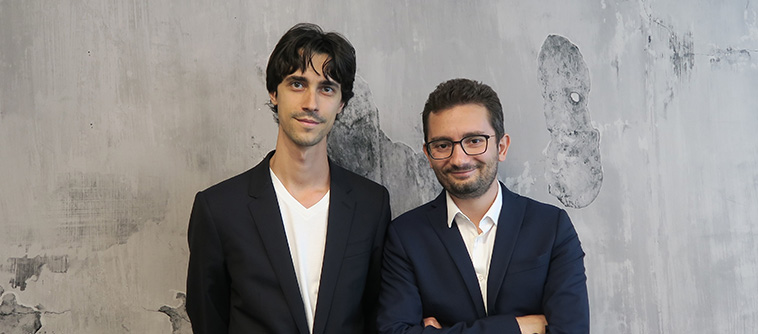
In a climate where 90% of start-ups fail, one outlier has just made the leap from incubation to incarnation.
Annaida, one of 27 winners in the 21st IMD Startup Competition in 2018, has recently announced the closure of a seed-funding round that drew in SFr1m. The new group of investors includes Hemex AG, Fongit Seed Invest, Zürcher Kantonalbank, Business Angels Switzerland, Privilège Ventures, Venture Kick, and an angel.
EPFL spin-off Annaida – the brainchild of Gora Conley and Marco Grisi –has developed a novel solution for fast and non-invasive embryo screening. These entrepreneurs have created a ground-breaking device, EmbryoSpin, that performs microscopic Nuclear Magnetic Resonance (µNMR) at a scale ten-fold better than existing technologies. µNMR enables non-invasive chemical analysis at the scale of a single human embryo and opens new global markets in assisted reproductive technology and more.
The device is small enough to properly analyze embryos only 0.2 millimetres in size and will permit IVF clinics to perform evaluations in-house, saving time and reducing costs.
Technology at its most meaningful
IVF often takes multiple cycles which results in high financial – and emotional – costs for couples. A crucial aspect of IVF success is selecting the embryo with the highest likelihood of developing into a healthy baby.
Finding the best embryo remains a challenge for doctors, who rely on outdated or risky methods such as microscope examination or biopsy. With only one out of three IVF attempts on average resulting in a successful pregnancy, doctors – and hopeful parents – are in need of superior screening options.
While they didn’t have any personal experience with IVF when they began the company, the founders (physicists by training) are passionate about technology and the potential of translating their work into something useful. After combing the literature on potential applications for chemical analysis of living things, they discovered embryos and the vacuum of suitable evaluation techniques.
Delving deeper, Conley and Grisi spoke to many doctors and clinics before founding the venture – and the potential was clear.
“In academia, you only see the beginning of things and then you move onto something else,” says Conley. “We wanted to see something through from beginning to end and not just see it appear in a journal.”
When entrepreneurs and EMBAs collide
After applying on a whim, Annaida was selected as one of 27 winners in the IMD Startup Competition. The company worked closely with the IMD EMBA program from June to September 2019, during which a cohort of participants used the firm as a “live case” for an assignment. The work touched on most of the business aspects of the venture and provided fresh ideas and added value to the organization.
The final part of the assignment involved an EMBA “Discovery Expedition” to Palo Alto. This saw Marco Grisi integrated directly into the EMBA class, participating in the same activities. He then watched as EMBA participants pitched the company to Silicon Valley venture capitalists.
“Silicon Valley is one the of the most competitive places for startups in the world,” says Grisi, “but I came out of the experience even more convinced of our own abilities. It helped me to push Annaida forward at full speed.”
The company was even able to use the wisdom it had garnered through the competition to gain exposure and secure initial funding.
“The EMBA participants ripped apart our business plan and asked questions we didn’t have the answers to,” says Conley, with a smile. “The experience helped us to pick a winning strategy and connect with other start-ups for their advice. The EMBA impact was invaluable.”
The future, and beyond
More than a one-trick pony, Annaida offers technology with multiple uses – from uncovering the biochemistry of microscopic life without need for toxic labels to monitoring metabolic evolution in 3D organoids. These other applications could prove especially useful in biochemical research and pharmacology.
In addition to its recent seed-funding announcement, the start-up has drawn a good deal of interest in entrepreneurial circles since it was guided by IMD’s EMBA program. It survived all stages of the Swiss Venture Kick competition, was awarded a prestigious InnoSuisse grant and is among the Top16 in the 2020 W.A. de Vigier Stiftung.